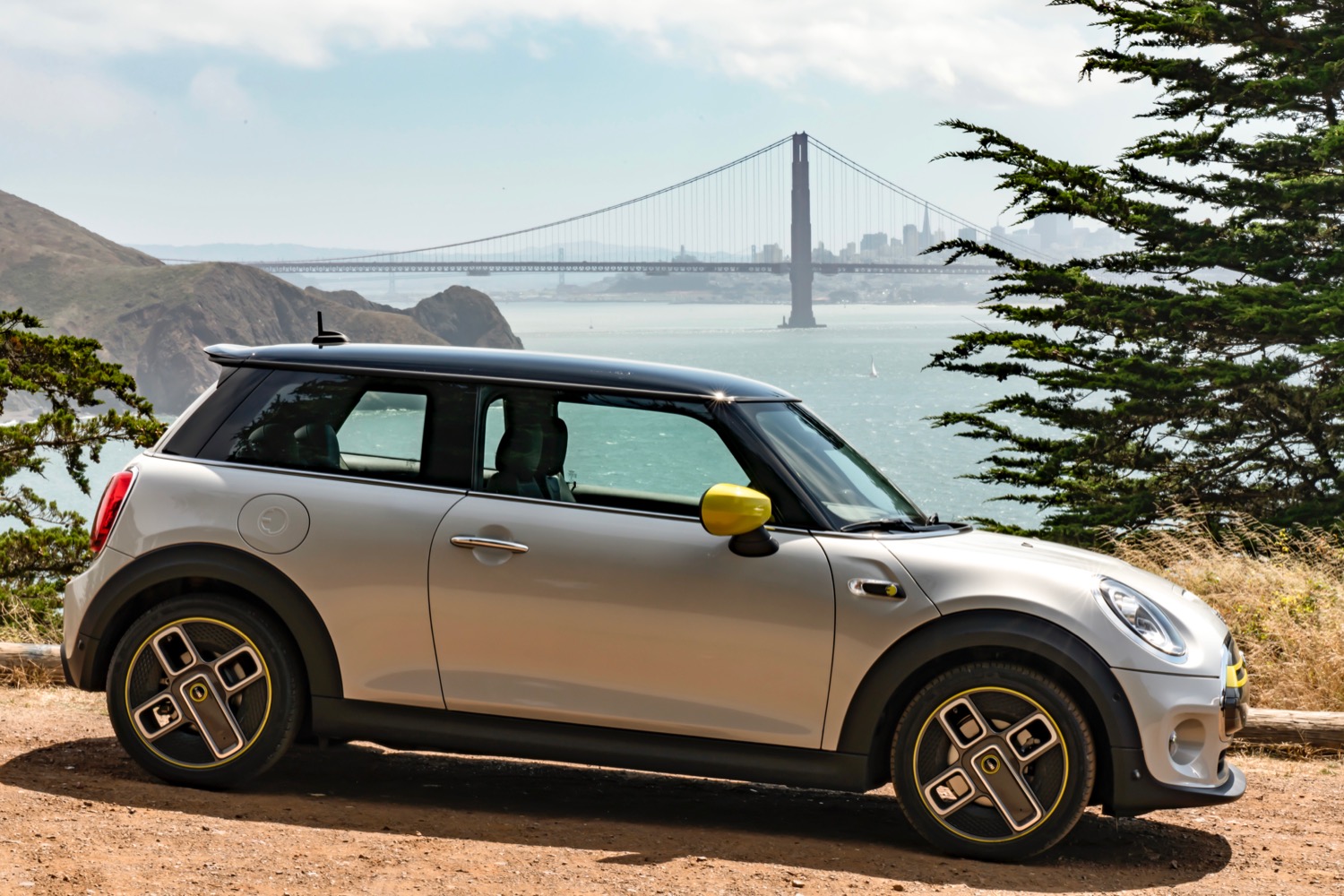
To combat range anxiety, the 2020 Mini Cooper SE is racking up the miles. Mini sent its first mass-market electric car on a road trip from Munich to Frankfurt with just one stop to charge. Now the electric Mini has completed a trip from San Francisco to Los Angeles — just in time for the 2019 L.A. Auto Show.
Unlike the German road trip, where Mini emphasized how easy it was to drive the Cooper SE long distance, this California version seemed to be more about sightseeing. Mini’s press release is chock full of Instagram-worthy locations along California Highway 1 (the public relations team managed to evoke both Bullitt and The Italian Job), but doesn’t make any impressive claims about range.
The trip started in San Francisco’s Golden Gate Park and ended in Venice Beach. If you stay on Highway 1, as Mini did, that’s a distance of about 460 miles. Mini hasn’t released a range estimated for the United States, but it previously quoted a range of 146 miles to 168 miles on the European testing cycle. Multiple charging stops were required to cover the distance, but Mini was quick to note that there are plenty of fun things to do while charging, like sightseeing and grabbing a bite to eat.
Mini claims a full recharge of the 32.6-kilowatt-hour battery pack takes four hours, when using a 240-volt Level 2 AC power source. The Cooper SE is also equipped for DC fast charging, allowing an 80% recharge in 35 minutes, according to Mini. Fast charging is the more practical option for road trippers, and California has plenty of stations. While the overall number of stations has expanded over the past few years, availability still varies by region.
The Mini Cooper SE boasts 181 horsepower and 199 pound-feet of torque. Mini claims it will do zero to 60 mph in 6.9 seconds, with a top speed of 93 mph. The Cooper SE is by no means the fastest Mini, but that performance should be more than adequate in real-world driving.
The electric Mini goes on sale in the U.S. in March 2020 with a base price of $30,750. That puts the Cooper SE roughly in the middle of the Mini lineup in terms of price. The Mini is priced to undercut most other mass-market electric cars, but most competitors offer more range. Pricing virtually matches the base Nissan Leaf, which has a 150-mile range, but the Nissan offers more passenger and cargo space.


